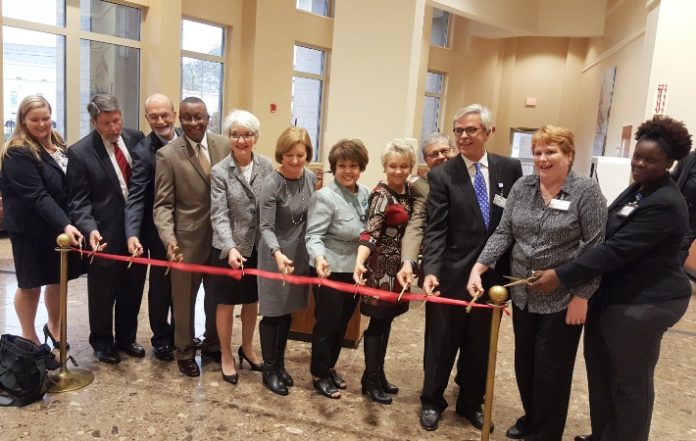Mercer University School of Law is pleased to announce a new partnership between Navicent Health, Georgia Legal Services and the Law School. MedLaw, an interdisciplinary team composed of legal, social and medical workers, will provide free civil legal services to qualified Navicent Health patients.
MedLaw will have one staff attorney, who will work under Georgia Legal Services, and Mercer Law School will provide two externs per semester to work in the office.
MedLaw will serve Navicent Health patients who are low income or over the age of 60 and whose health, treatment or recovery is impeded by a legal need directly related to the patient's health, when the patient has attempted to remedy the situation but has received an adverse response.
“We are thrilled to be a part of this collaboration. As an academic institution, our mission includes both teaching and serving, and this gives us a great opportunity to fulfill both of those,” said Mercer Law School Dean Daisy Hurst Floyd.
“Our goal is to help low income and elderly Navicent Health patients navigate the sometimes confusing legal system in cases where care may be affected,” said Navicent Health President and CEO Dr. Ninfa M. Saunders, “Our desire is to improve the health of our patients by removing any barriers to needed health services and care, in hopes of leading the citizens we served to a greater level of health and wellness.”
The office will handle a variety of cases, including, but not limited to, the following:
Discharge from a long-term care facility or home health program Social Security, after termination or denial Access to health insurance, including Medicaid and Medicare Housing and utilities Income maintenance, including food stamps and veteran's benefits Advance directives and Qualified Income Trusts (QITs) Family law in cases of domestic abuse when a legal need may affect access to care
Experiential learning at Mercer Law is comprehensive, providing both practical experience and specialized course work to complement hands-on learning. Nearly two-thirds of students take advantage of these opportunities by participating in the experiential education program through externships, the Public Defender Clinic or the Habeas Project.










